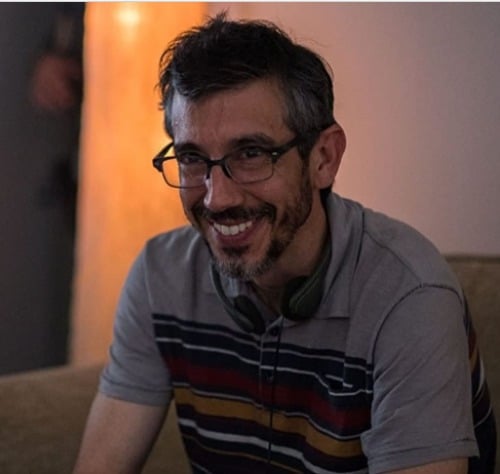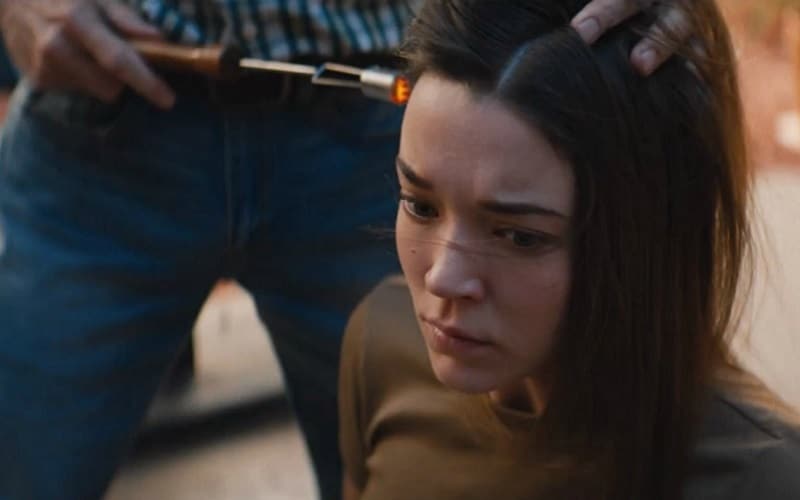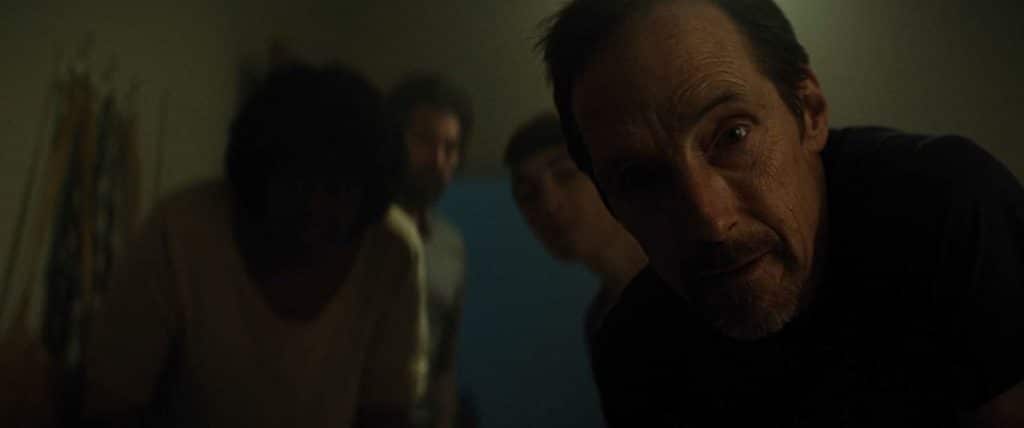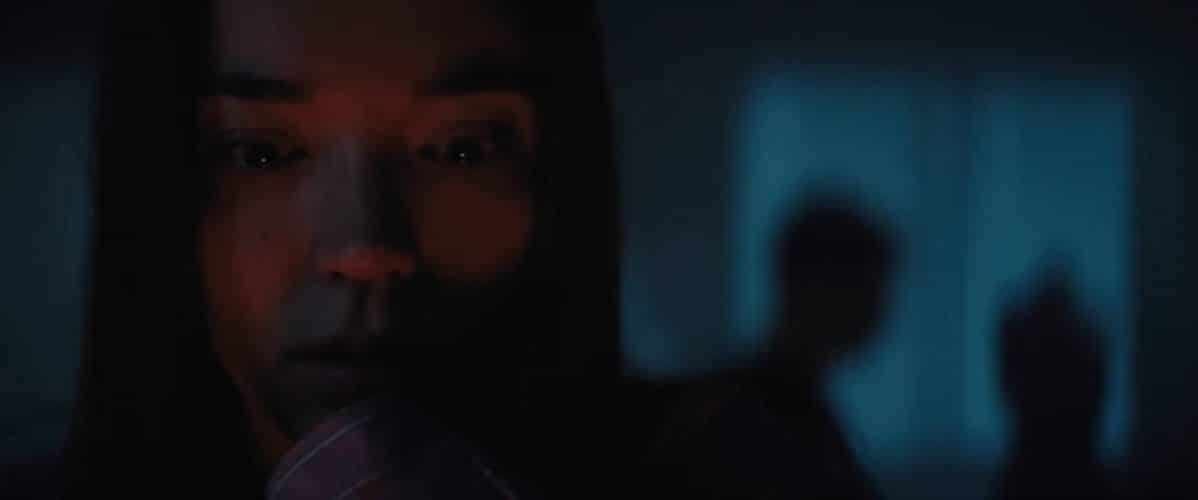
1BR, which I reviewed recently, was one of those great screeners which managed to surprise me whilst clearly also paying due respect to existing genre features. This is a skill which not everyone can demonstrate, much less in their debut feature, so I reached out to the director, David Marmor, to find out a little more about the world of 1BR and the experience of bringing it to the screen…
1) So for your very first feature, you chose to go with a horror/thriller. What was it that drew you to this genre?
I hope it won’t be a disappointing answer to say it was kind of just luck. It wasn’t a strategic decision at all. I love horror movies, but had never written one until 1BR.
I actually never think about genre when I’m starting a new project. Usually once I know what the story is, it will naturally feel like one genre or another, and that was definitely the case with 1BR. When it started taking shape in my mind, it always had a nightmare feeling, and seemed to clearly want to be horror, so I embraced that.
That turned out to be really lucky, I think, as I’ve learned in retrospect that horror is one of the few genres where you have a chance of breaking through with something very low-budget and with no “name” stars. We also discovered the wonderfully passionate world of horror fans, who are such an engaged and warm (if you’ll forgive me) community.

2) Why LA? Los Angeles is an important setting for 1BR, and it’s often held up to be the ultimate ‘American Dream’ city, though there’s a different side to it. Was it important to you to set your film there, and why?
Originally, the script was set in Los Angeles simply because the story was inspired by the apartment I lived in when I first moved to L.A. So when I started writing, I just kept things as close to reality as possible. But as I worked on it, I realized L.A. was actually integral to the story. I think you’re completely right to say that L.A. is the ultimate “American Dream” city. It’s full of people who have moved away from everyone they know, pursuing improbable dreams, trying to reinvent themselves. We hear about the few who succeed spectacularly, but the fact is most people in L.A. have not “made it” and many never will. It’s a city of people struggling alone, far from family and friends (as I was when I started writing the script), and I found it uniquely potent as a setting that Sarah would find seductive as well as desperately lonely.
3) 1BR touches upon ideas of cults, communes and closed communities which operate under often very punitive rules and regulations. What drew you to that as a theme, and how did you navigate the line between real-life precedent and fantasy?
I’ve long been fascinated by fringe communities, and it turns out L.A. has been very fertile ground for these types of groups, probably in part because of the loneliness I’ve just talked about. So it felt natural to connect the two thoughts, and that was really where the idea of the movie first came from. I started with this basic idea, of an extreme community operating in the most normal of settings, and as I wrote, I found that it just kept branching out, adding layers to the story, and resonating to me as a metaphor for my own ambivalence about the trade-offs we make to be part of society.
As far as walking the line between reality and fantasy, my instinct is generally to stick as close to reality as possible, and only embellish when the story demands it. In this case, that turned out to be sadly little. Almost all the awful things that happen to Sarah are drawn from real life examples, either from real cults, or from interrogation techniques used by the U.S. military and others.

4) Did you draw on any specific cinematic influences for 1BR?
Oh yes, too many to list here! Of course in making a movie like this I couldn’t help but be influenced by Roman Polanski’s Apartment Trilogy (Repulsion, Rosemary’s Baby, The Tenant). I also studied Darren Aronofsky’s brilliant Black Swan closely for how it keeps the audience in the protagonist’s point-of-view. I’m generally always influenced by Stanley Kubrick, and there’s a good deal of A Clockwork Orange in 1BR as well. In less specific ways, I was also influenced by movies like Caché, Invasion of the Body Snatchers, The Texas Chain Saw Massacre, and many, many others…
5) What has your first experience of writing/directing a feature taught you? And what would you like to go on and do next?
I don’t know if there’s any film education as intense as making a first feature. In just those fifteen shooting days, I think I learned as much as I ever did in film school.
Maybe the most important lesson was to let go of my perfectionist tendencies. We were so limited in time and money, and had to make so many compromises all the way along, it would’ve been a recipe for insanity if I’d tried to cling to the idealized version of the movie in my head. At some point early on, I realized all I could do was fight for the most important things and let go of the rest.
Even that wasn’t always easy, given the disasters we experienced (our producer, Alok Mishra, has written an entire article for MovieMaker Magazine about this, but a few of the lowlights included losing three lead actors a few days before shooting; being shut down by wildfires; and having an equipment truck stolen in the middle of the night). But in a way I’m grateful for the chaos, because it forced me to learn to put everything else aside, trust the producers to keep us afloat, and focus on carving out a positive, creative space on set where the cast and crew could do their best work.
A smaller lesson, but just as important for me, was to pace myself. Even a shoot as short as ours is a marathon, and it was really important to learn to be disciplined about sleep, and to make sure to find moments to be alone and quiet so I could stay focused over the entire length of the production.
As for what I’d like to do next, 1BR was so harrowing and exhausting it probably took years off my life–and all I want is to do it again as soon as possible! I’m actually working with the same producers on my next feature, which is very different, a science-fiction thriller on a much bigger scale. Alok has forbidden me to say any more about it for now, but I can say it’s a script I’ve been working on for years and I couldn’t be more excited to make it. (Whenever we get to start making movies again in a post-Covid world!)
6) Sounds great! Before we wrap this up, do you have any other comments?
I’d just like to thank everyone, yourself included, who has embraced our little movie. The reception we’ve gotten has been beyond anything I’d hoped for, and I’ll be forever grateful to the festival programmers who took a chance on us, the genre press who have gotten the word out, and the fans who have taken a chance on this movie. It means the world to me!
Massive thanks to David Marmor, Alok Mishra and the team behind 1BR. To find out more about the film, check out the official account on Twitter: @1BR_Film
